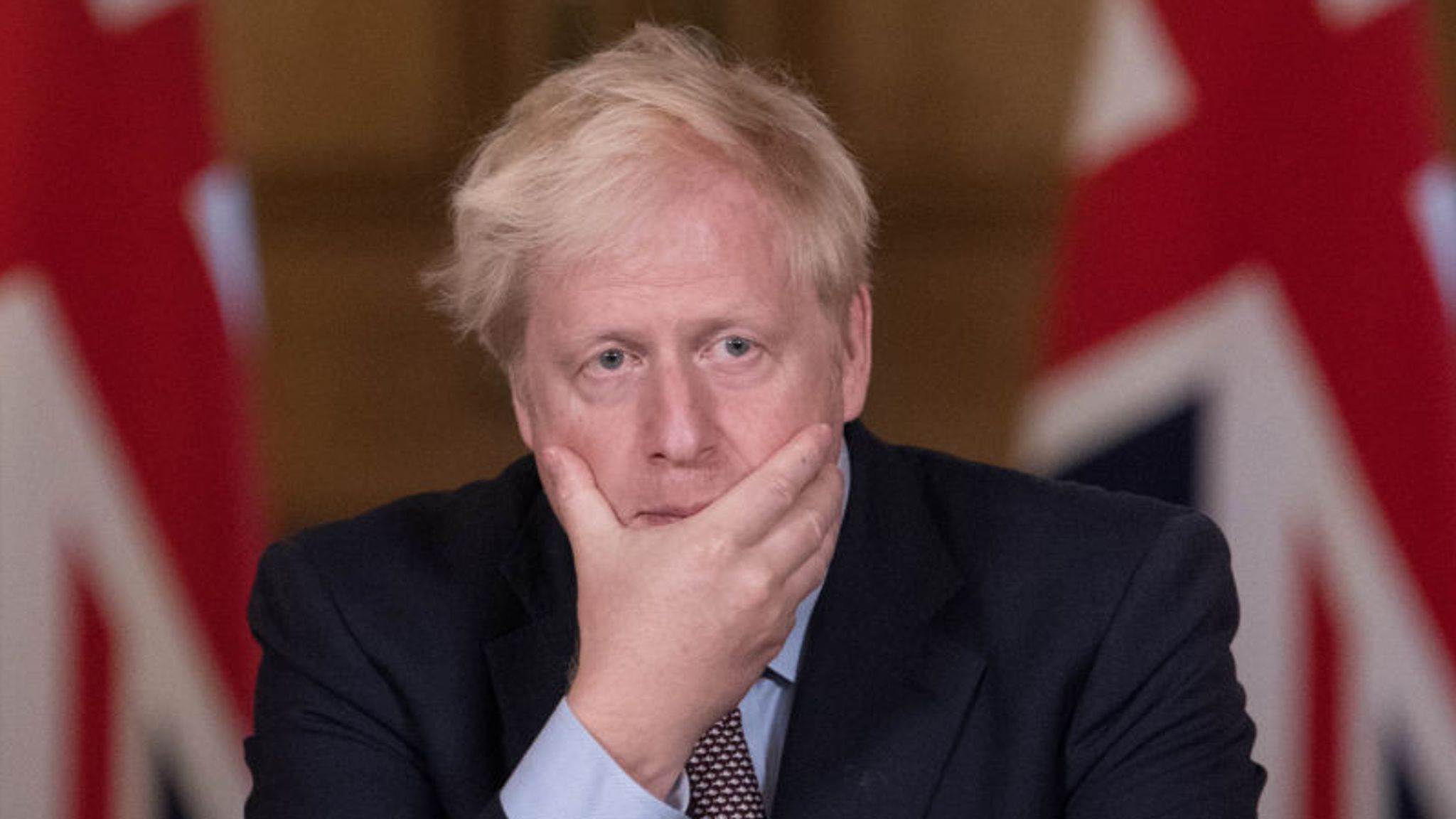UK govt used blackmail, intimidation to keep Johnson in power: lawmaker
In light of various scandals in the face of Boris Johnson, his party, and his government, a lawmaker came forward with allegations against Downing Street saying the government used blackmail and intimidation to keep Johnson in power.
-

British Prime Minister Boris Johnson
The British government has used intimidation and attempted to blackmail lawmakers suspected of wanting Prime Minister Borish Johnson out of power, a senior Conservative lawmaker claimed Thursday.
This comes as Johnson faces calls to step down in light of various scandals in Downing Street, including his attendance at a party in his office during a COVID-19 lockdown in Britain.
Read more: Boris Johnson's latest scandal? Another lockdown party
It is worth noting that the United Kingdom was the first European country to surpass the 100,000 deaths threshold.
More than 150,000 people have died after catching the coronavirus in the UK, a tragic milestone for one of the worst affected countries in Europe.
Conservative lawmakers have been leading a campaign to topple their leader while opposition leaders have demanded resignation from Johnson. The Conservative attempts to unseat the prime minister come despite his pledges to lead his party into the next election.
William Wragg, chair of the Public Administration and Constitutional Affairs Committee, came forward with accusations against the UK government, saying Downing Street had blackmailed and intimidated lawmakers who oppose Johnson.
In recent days, Wragg said, several MPs have "faced pressures and intimidation from members of the government" over their declared - or assumed - desire for a vote of confidence in the Conservative Party's leadership of Prime Minister Johnson.
"Moreover, the reports of which I'm aware would seem to constitute blackmail," Wragg asserted, calling on his colleagues who faced such cases to report them to the police and the speaker of the House of Commons.
Johnson dismissed the allegations, saying there was no evidence supporting them, a reiteration of statements from his office saying the accusations had no backing and had there been any, the allegations would be looked at.
Christian Wakeford, a former Conservative lawmaker who had recently defected to the Labour Party, said the government had threatened to withhold funding for a new school in part of his constituency were he to refuse voting with it.
"I was threatened that I would not get the school for Radcliffe if I didn't vote in one particular way," Wakeford told the BBC, which he said made him question the legitimacy of his party.
"This is a town that has not had a high school for the best part of 10 years, and how do you feel when holding back the regeneration of a town for a vote, it didn't sit comfortably," the BBC further quoted him as saying.
The opposition used this as further evidence to back their case against Johnson, escalating their calls for him to resign.
Scottish first minister Nicola Sturgeon said the "moral decay" at the heart of Johnson's government "may be even worse than we thought."
Labour Party's deputy leader Angela Rayner saw the accusations as "disgusting."
Conservative lawmakers have said they were awaiting the completion of a probe into the parties, meaning the threshold for a confidence vote in Johnson is yet to be reached.

 3 Min Read
3 Min Read








